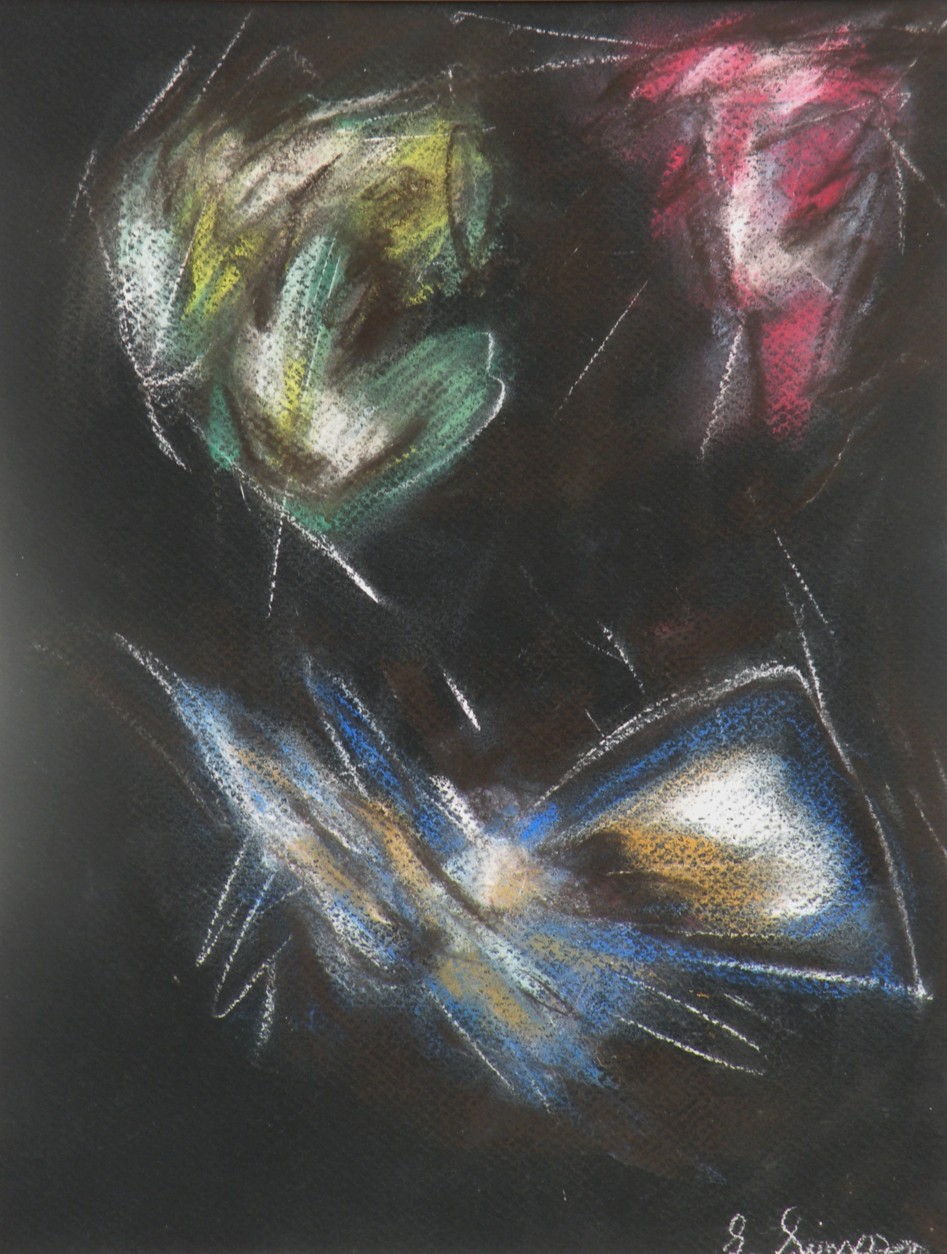
Click image for full screen version
Marielle
sang
Fado Saturday nights at a
small club settled into the ground floor of an abused tenement
building,
most
of whose flats were empty. It
wasn’t marked and the place never advertised. If
you didn’t know it was there
and that
Marielle would
sing on Saturday night was
your tough luck.
There
were two rooms with a bar in the front, perhaps ten
small tables
and a brief stage lit by dichro spots, enough
to define it
in color. The owner, Mr.
Cordage, a former bosun in the merchant marine who gave up the
trade to
enjoy
the savings he
pulled together over the years -- and
who won
title to the
place in a crap game -- made a bit more in the
back room, which
he
rented out
for whatever it was that anyone wanted
to do there. Usually that meant
poker
but
sometimes it
also meant
commerce, which was just another term for
stolen
goods.
So
we’d be there Saturday nights, my wife and me, because
Marielle was a
friend and because she had the kind of voice
that
undid us. Deep,
throaty, angular, Marielle would get into those songs. Her accompanist,
Toby,
played a
rugged
bandonion, too.
They made the kind of music we missed.
It didn’t happen
on the radio. Why would it? Fado wasn’t
popular any longer.
It
persisted
because it had roots that predated us,
and the generations before us. How far
back it
went was anyone’s
guess.
My
wife and me grew up with it. We met because of it and
we fell for
each other by way of it. The songs told tales we
knew and
needed -- to
make it
through the daily grind. Work was never our forte. Oh we lived decently
enough,
and
once on the up and up.
But that was then. And the loss,
the
unfulfilled
passion, the anger and bitterness and sorrow
and joy and beauty
in the music
did their magic. When listening to Marielle and
Toby go at it, so
softly and
slowly at
first then rising to
a pitch and tumbling back
down to
another sad
ending, infused by the pleasure they took
in getting
us there and keeping
us
with them, the world we dealt
with didn’t matter so much. We were in
another
world, ever
sensual,
true and deep. Their duet became our duet. And for a few
moments at least, we lived in a song that sang us.
I can’t imagine that the
other habitués of the club experienced the music any
differently.
Soon enough, we got to know each other,
those of us who
made it there on
Saturday night; an extended family of sorts
brought
together by a Fado
voice
and all that pungent yearning vibrato. Now and then, strangers would
find their
way to
the club, and if
they returned they weren’t
strangers for long.
Mr.
Cordage was generous with the wine, too, which he
kept below price. Once a month he’d
cook up tapas, a decent
spread he’d lay out on the bar, because, as he told us,
“sometimes you’ve
just
got to eat.” You took what you wanted,
never more than just enough,
and left a good tip. That
was the way he
ran the
club.
Last month, after five solid years, Mr.
Cordage closed it
down. One
Saturday night we arrived to a locked door with a
brief note in
his
quick scrawl tacked
to it: thanks for coming, it said, but I have to move on.
Later,
we heard through a
friend we met
at the club, who
lived in our neighborhood
and
whom we’d pass on the street, coming or going, that
Mr. Cordage went
south. His sister was
dying from cancer, he didn’t have anyone
else, she owned a
cottage
near the
coast, which he’d
inherit, and that was that.
Marielle and Toby? Recently, I saw
their names on a poster
for a
traveling Fado show, the kind that plays for tourists.
They weren’t
headliners but what does
that matter. Fado isn’t a hierarchy and doesn’t do so
well with
stars that critics
acclaim. You don’t even
have to
sing it as Marielle did,
with her gusto and nuance. You just have to feel it and get enough
of
it out, so that you can
make someone else feel it, too.